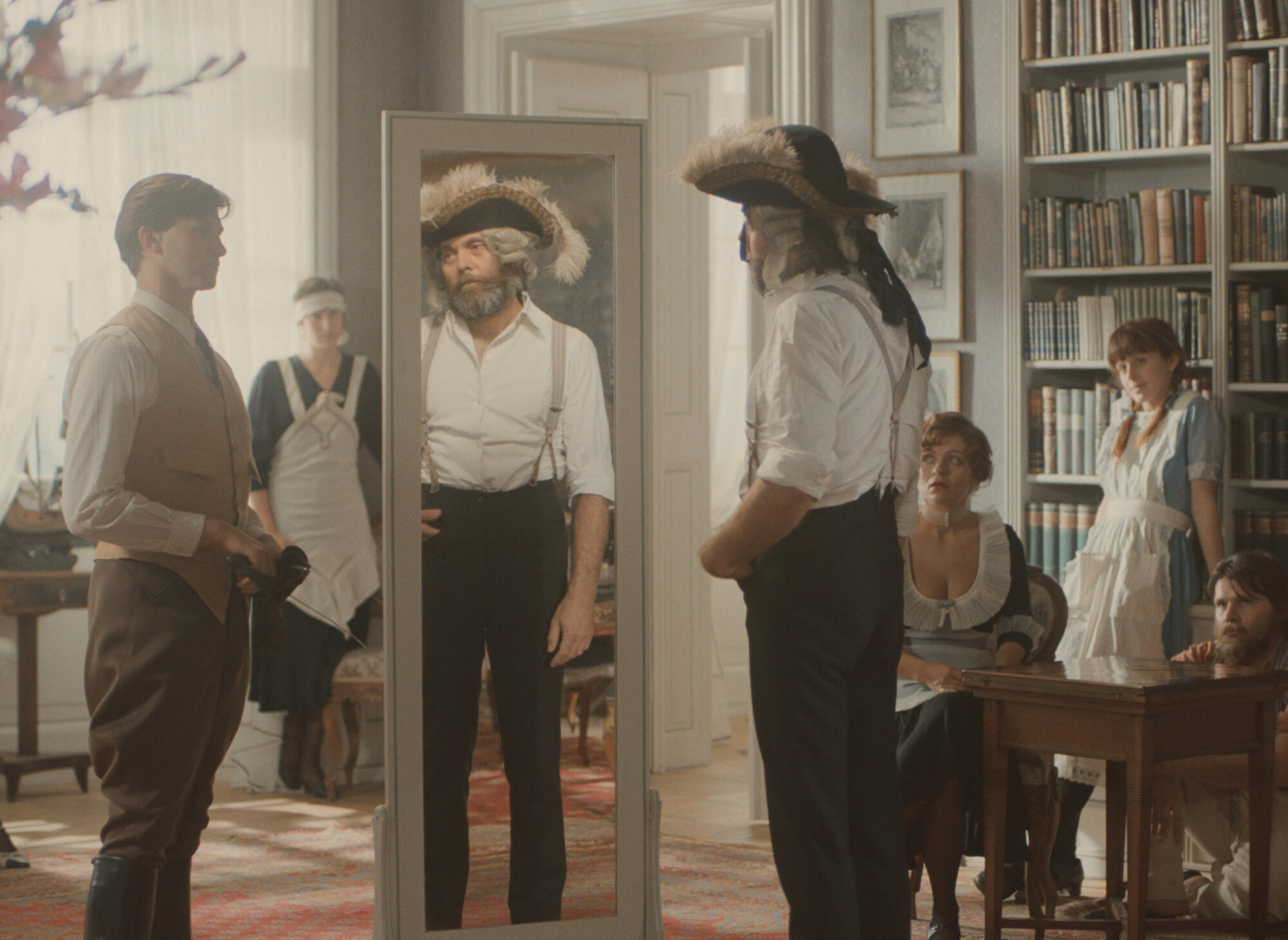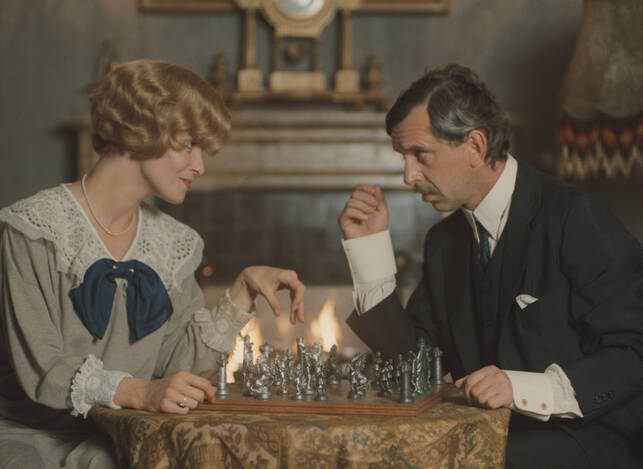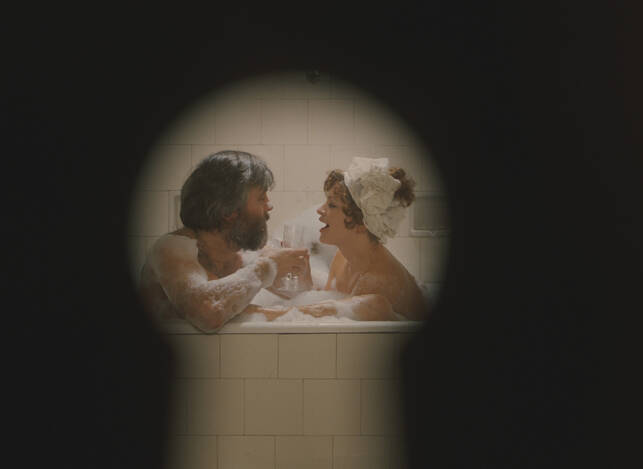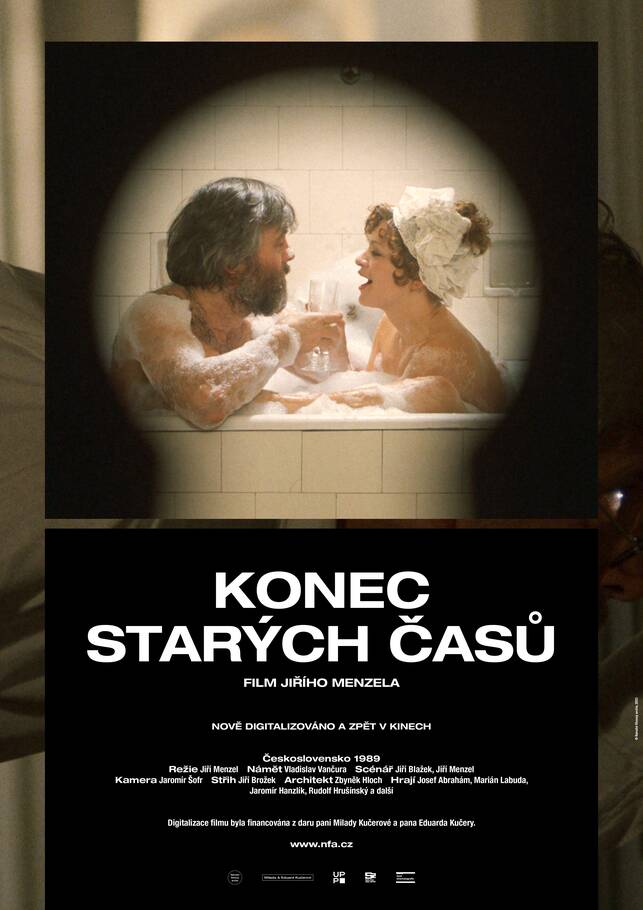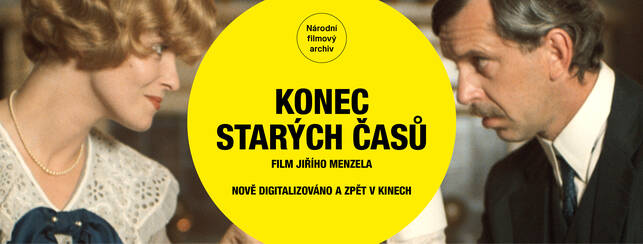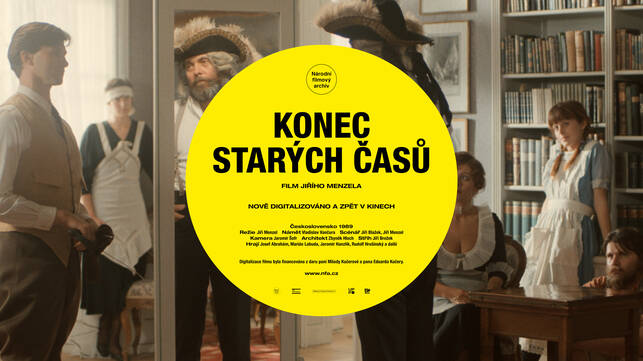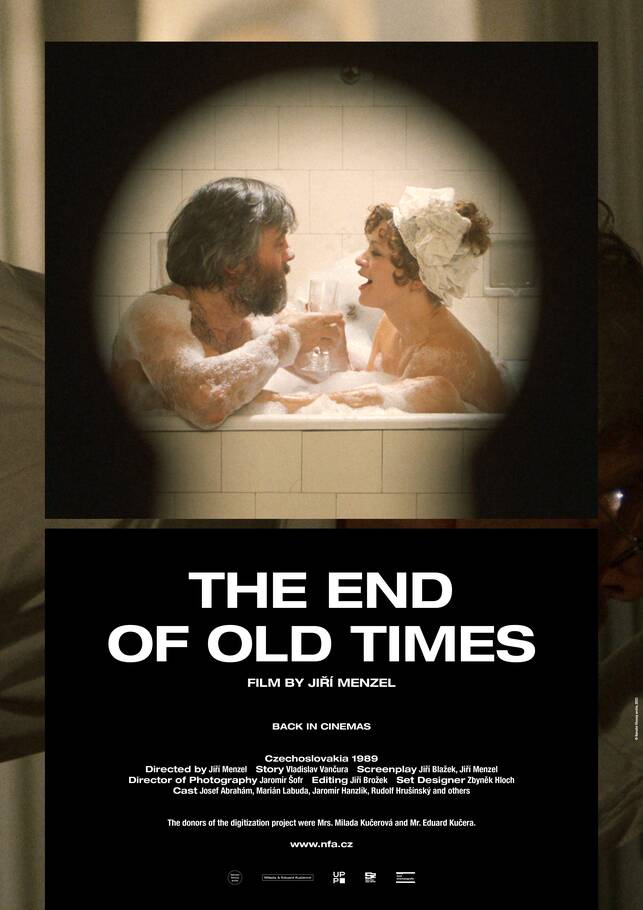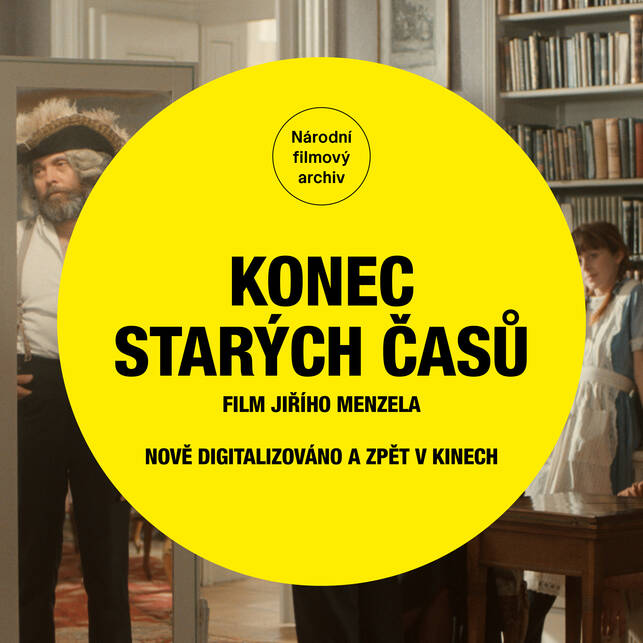Summary
While Vladislav Vančura’s novel was first published in 1934 it remains popular with readers today, in part thanks to director Jiří Menzel’s 1989 film adaptation. Konec starých časů (The End of Old Times) is set shortly after WWI at the stately home Kratochvíl, where among the new agrarian elite appears a fascinating guest, the Russian exile Megalrogov. It soon transpires that the elegant aristocrat is a modern-day Baron Munchausen. However, despite his clear untrustworthiness he is exciting and attractive to the nouveau riche locals (and especially their children, daughters and wives)… In the hands of Menzel and screenwriter Vratislav Blažek, the basic theme of Vančura’s story, the clash between the old and new worlds, merges organically with a sense of nostalgia linked to the notion of the good old days. While they, as we know, never existed, their representative – the noble wanderer Megalrogov – impresses thanks to his dignity and confidence. The adversaries (and hosts) of the self-styled “aristocrat of the spirit” are uneducated, crude moneygrubbers of the type of Stoklasa, a big farmer. The regent has his eyes set on Kratochvíl, which he aims to take ownership of materially and spiritually. Megalrogov nonchalantly shows him, however, that notional “old times” cannot be bought… Menzel again displayed his skills at adaption in this attractively conceived narrative that in its refinement and tragicomic tone follows on from the director’s other “nostalgic” adaptations – Vančura’s Rozmarné léto (Capricious Summer) (1967) and Bohumil Hrabal’s Postřižiny (Cutting It Short) (1980). While the expressive Czech of the book was transformed in the hands of its adaptors, the “painterly” camera work of Jaromír Šofr heightened the popular picture’s formal quality. Josef Abrhám excelled in the role of Megalrogov and later appeared in two Menzel projects relating to Václav Havel: as Vaněk in a television version of Audience (1990), and as Macheath in The Beggar’s Opera (1991).
Read more

